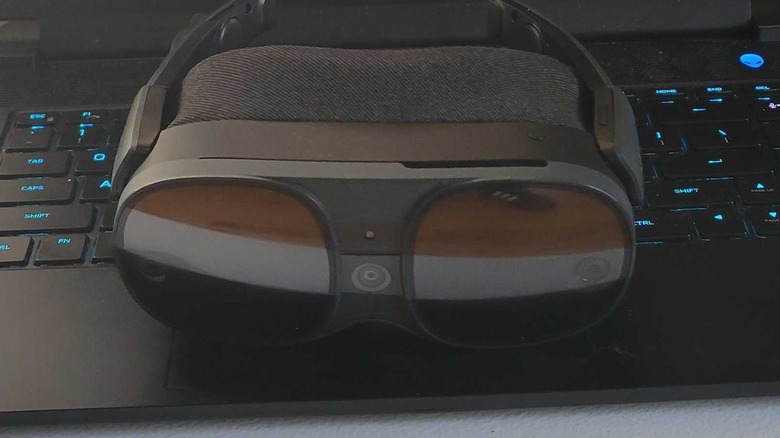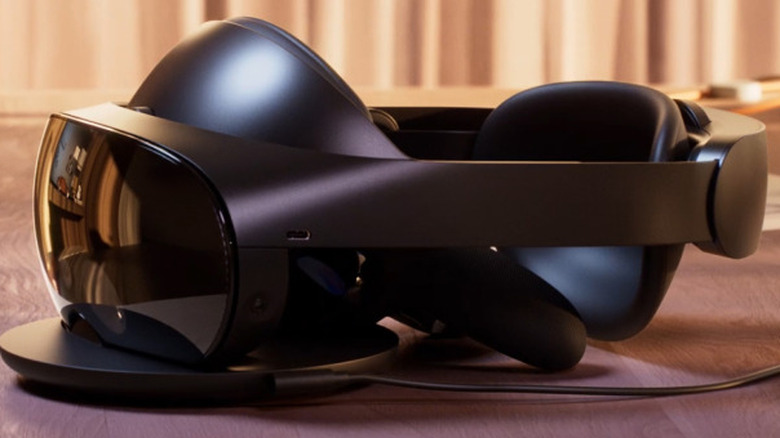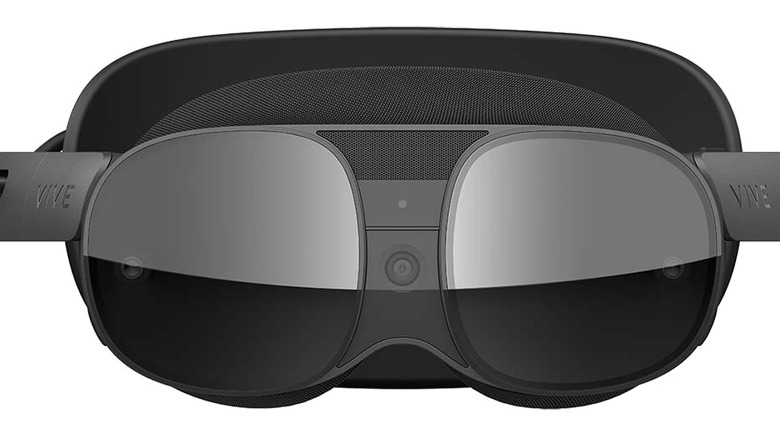HTC Vive XR Elite Vs. Meta Quest Pro: Which VR Headset Is The Better Buy?
Late last year, Meta launched the Quest Pro — a high-end standalone headset designed to showcase some of the features that would be appearing in its cheaper headsets further down the line. The Quest Pro debuted at a price point of over $1,500 — but recently received a price cut putting it closer in cost to HTC's new headset. The Vive XR Elite retails for $1,099 and is the company's second wireless, standalone, device. It too boasts plenty of high-end features and is aimed at enthusiasts who want a little bit more from their hardware.
So which is the best headset? Well, that depends on what you want to use it for. VR has come a long way in the last few years, and these headsets are powerful enough to run games on their own. Standalone VR drops the barrier to entry significantly, as you don't actually need to purchase anything beyond the headset itself.
However, PCVR hasn't gone anywhere. It's the more expensive option but allows for a far higher quality experience. Bigger games can be loaded, with better graphics. There's also a wider selection of titles to choose from. You can even wander around the worlds of Skyrim and Fallout 4 — or convert older titles for VR use. Conveniently, one of the headsets is probably the best standalone device on the market these days, while the other is a better option for dedicated PCVR enthusiasts. Here's which is which
Best option for standalone use: The Meta Quest Pro
The first Quest came out in 2019, so Meta is definitely the most experienced of the two companies when it comes to creating standalone VR headsets. So it probably isn't a surprise that the Meta Quest offers a better standalone experience than the HTC Vive XR Elite. Under the hood, the Quest Pro also has slightly better hardware. Both headsets have 12GB of RAM and a roughly two-hour battery life, but the Quest Pro's Snapdragon XR2+ chip is better than the Vive XR Elite's standard XR2.
Meta's user interface is a little more refined, and packs more features than HTC's effort — but the main difference comes with the number of apps available. HTC's options are very limited, and none of the standalone apps are that good. There's a distinct lack of heavy-hitting titles like "Boneworks," "The Walking Dead: Saints and Sinners," and "Blade and Sorcery."
To make matters worse for HTC, Meta has a long-standing habit of buying up VR studios that are producing good games. Because of this, many major VR games are going to be Quest exclusives, further limiting how far HTC can take its own online store. In short, Meta got in there first and has really locked the standalone market down for now. It's going to be very difficult for other companies to come along and carve out a significant slice for themselves. HTC's standalone experience will undoubtedly get better as time goes on, but it has a long way to go before it can seriously challenge the Quest Pro.
Best Option for PCVR: The HTC Vive XR Elite
When PCs get involved, a lot of the Quest Pro's advantages disappear and the Vive XR Elite really starts to shine. In terms of connectivity, the XR Elite is incredibly simple to connect. You download HTC's app, "show" your headset the QR code that pops up on the screen to sync it, wire your PC to a modem, then connect your headset to the relevant WiFi network and choose your PC from the connections menu. The Vive XR Elite also supports WiFi-6e, so your wireless connection is going to be smooth as butter. Meta recently added WiFi-6e support to its headsets, but users have had to wait around six months for the feature to be enabled. The headset's UI syncs with Steam, so you can launch PCVR titles directly from that.
HTC's headset is a lot more comfortable than the Quest Pro, so long PCVR sessions aren't going to leave you with sore spots all over your forehead and an ache in the back of your skull. While playing wired, seated, experiences the headset can be used in "glasses mode" where the battery is detached and the Vive XR Elite basically turns into a set of VR goggles.
To round it all off, Meta likes scraping some money back through official accessories. So an official "Link Cable" will set you back over $70 and an off-brand VR-capable alternative is still not dirt cheap. HTC has included a PCVR-capable USB C to C cable in the box, so you can just hop right into wired VR without dropping a bunch of extra cash.


